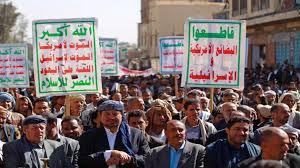Trump admin cementing legacy with Israeli settlement visit, Yemen and Iran sanctions


With the clock ticking on the Trump administration, Secretary of State Mike Pompeo is breaking precedents with a tour of Israeli-occupied land and pushing to cement a foreign policy legacy for an administration in denial that is in its final days.
That includes a sweep of new sanctions on Iran, symbolic gestures in support of hard-line Israeli positions and sanctioning Yemeni rebels in a move humanitarian groups warn could cost lives. Critics call it a salted-earth strategy meant to box in Joe Biden's incoming administration -- something Pompeo himself seemed to embrace.
President Donald Trump's "maximum pressure" campaign on Iran "is working, sanctions will continue and the United States will not hesitate to impose painful consequences on those who engage in sanctionable activity. Throughout the coming weeks and months, we will impose new sanctions on Iran," Pompeo said Wednesday.
That statement was issued shortly before Pompeo arrived in Jerusalem, where he has sawed away at norms this year -- addressing his party's political convention in August and on Thursday becoming the first Secretary of State to visit an Israeli settlement in the West Bank and the Israeli-annexed Golan Heights.
"This is a part of Israel -- and a central part of Israel," Pompeo said in the Golan Heights, disparaging the "salons in Europe" and "elite institutions in America" that said the region should be returned to Syria after Israel seized it during the 1967 Six-Day War. In March 2019, Trump recognized Israel's annexation of the territory, making the U.S. the only country in the world to do so.
Earlier in the day, Pompeo visited Israeli settlements in the West Bank, starting at Qasr el-Yahud, the traditional site of Jesus' baptism in the Jordan Valley, according to a State Department official. U.S. press were barred from traveling with him.
Afterwards, he visited the Psagot Winery near the Israeli settlement of Psagot, a vineyard popular among evangelical Christian Americans. Pompeo and its owner met in July in Des Moines, Iowa, at the Family Leadership Summit, hosted by evangelical leader Bob Vander Plaats, who told ABC News, "Secretary Pompeo should be commended for his support of Israel, and I think it's a good thing for the U.S. secretary of state to visit Judea and Samaria," the Biblical and Israeli names for the West Bank.
While Pompeo was there, he announced that the State Department will require that all goods made in "areas where Israel exercises the relevant authorities" be marked as "made in Israel" when they're exported to the U.S. That means any product made in Israeli settlements, which the U.S. does not officially recognize, can be labeled as a product of Israel -- creating an official-unofficial recognition of Israeli control of contested lands.
While U.S. labels now say "West Bank/Gaza," the new policy also requires that goods made "where the Palestinian Authority maintains relevant authorities" be marked as from the "West Bank" and those made in Gaza marked "Gaza." That essentially splits Palestinian territory into two separate places, which Palestinian leaders said undermines the idea of a unified Palestinian state.
Among the products available for export to the U.S. are a Psagot Winery wine named after Pompeo. The winery produced a limited edition red blend of Syrah, Merlot and Cabernet Sauvignon named for the top U.S. diplomat after he blasted the European Court of Justice for its ruling last November that products made in Israeli settlements must be labeled as such, not as from "Israel."
Pompeo also announced Thursday that the U.S. will identify organizations that support the Palestinian Boycott, Divestment, Sanctions (BDS) movement, which opposes Israel's settlement policies, as anti-Semitic and withdraw U.S. support for them.
Pompeo has long called the BDS movement anti-Semitic, equating criticism of Israeli policies with hatred of Jews -- which is itself considered anti-Semitic by some Jews. But this change now codifies that view into U.S. policy and will have real-world implications, including possibly funding for Palestinian or human rights groups like Amnesty International or Human Rights Watch that are deemed supportive of BDS.

Yemeni officials on Monday condemned arrests and prosecutions by the Iran-backed Houthi militia directed against media, journalists and celebrities…

Yemen's warring parties are gearing up for new waves of conflict in 2023 amid a lack of decisive steps towards sustainable peace, adding to the suf…

The UAE will help to recruit doctors and deliver crucial supplies for hospitals in Yemen under a major healthcare drive. The Khalifa bin…